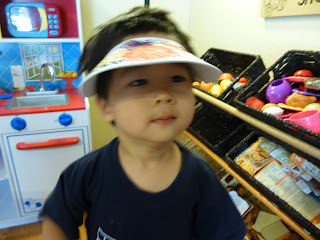What Is Self-Esteem?
Self-esteem is similar to self-worth (how much a person values
himself or herself). This can change from day to day or from year to
year, but overall self-esteem tends to develop from infancy and keep
going until we are adults.
Self-esteem also can be defined as feeling capable while also feeling
loved. A child who is happy with an achievement but does not feel loved
may eventually experience low self-esteem. Likewise, a child who feels
loved but is hesitant about his or her own abilities can also develop
low self-esteem. Healthy self-esteem comes when a good balance is
maintained.
Patterns of self-esteem start very early in life. The concept of
success following effort and persistence starts early. Once people reach
adulthood, it's harder to make changes to how they see and define
themselves.
So, it's wise to think about developing and promoting self-esteem
during childhood.
As kids try, fail, try again, fail again, and then
finally succeed, they develop ideas about their own capabilities. At the
same time, they're creating a self-concept based on interactions with
other people. This is why parental involvement is key to helping kids
form accurate, healthy self-perceptions.
Parents and caregivers can promote healthy self-esteem by showing
encouragement and enjoyment in many areas. Avoid focusing on one
specific area; for example, success on a spelling test, which can lead
to kids feeling that they're only as valuable as their test scores.
How Parents and Caregivers Can Help
- Be careful what you say. Kids can be sensitive to
parents' and others' words. Remember to praise your child not only for a
job well done, but also for effort. But be truthful.
- Be a positive role model. If you're excessively
harsh on yourself, pessimistic, or unrealistic about your abilities and
limitations, your kids might eventually mirror you.
- Identify and redirect inaccurate beliefs. It's
important for parents to identify kids' irrational beliefs about
themselves, whether they're about perfection, attractiveness, ability,
or anything else. Helping kids set more accurate standards and be more
realistic in evaluating themselves will help them have a healthy
self-concept
- Be spontaneous and affectionate.
Give praise often and honestly, but without overdoing it. Having an
inflated sense of self can lead kids and teens to put others down or
feel that they're better than everyone else, which can be socially
isolating.
- Give positive, accurate feedback.
- Create a safe, loving home environment. Kids who
don't feel safe or are abused at home are at greatest risk for
developing poor self-esteem. A child who is exposed to parents who fight
and argue repeatedly may feel they have no control over their
environment and become helpless or depressed
- Help kids become involved in constructive experiences. Activities that encourage cooperation rather than competition are
especially helpful in fostering self-esteem. For example, mentoring
programs in which an older child helps a younger one learn to read can
do wonders for both kids.
Read the full article






















































